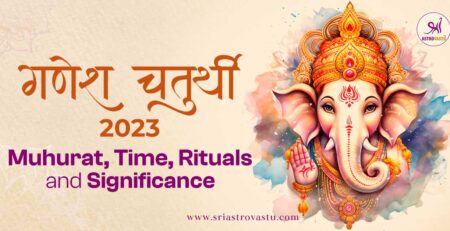Diwali 2025: History, Significance and Importance | Diwali Festival 2025
Among the most revered and often celebrated festivals in India and among Indians worldwide is Diwali, the festival of lights. This year, Diwali festival will take place on Tuesday, October 21st, 2025. This fortunate event signifies the victory of knowledge over ignorance, light over darkness, and good over evil. Diwali 2025 is set to shine hearts and homes once more with brilliant diyas, vivid rangolis, mouthwatering sweets, and the sound of firecrackers.
One can find the roots of Diwali in ancient India. Originally a harvest celebration, it developed over ages to have great spiritual, cultural, and historical implications. Derived from Sanskrit words deepa (lamp) and avali (row), the word “Diwali” or “Deepavali” denotes a row of lights.
Various parts of India connect Diwali Festival with distinct historical events. Celebrated in northern India, it honours Lord Rama’s return to Ayodhya following 14 years of exile. It signals Lord Krishna’s triumph over Narakasura in southern India. It honours Lord Vamana’s triumph over King Bali in western India.
Mythological Legends Behind Diwali Festival
- Following his defeat of the demon king Ravana, Lord Rama, together with Sita and Lakshmana, returned to Ayodhya. Deepavali got their name from the rows of lamps when the people welcomed them with those bright lights.
- Krishna and Narakasura: In the South, Diwali is linked to Lord Krishna slaying the demon Narakasura, who had terrorized the world. His defeat symbolizes the victory of righteousness.
- Diwali also marks the birth of Goddess Lakshmi from the churning of the ocean (Samudra Manthan), so embodying wealth, fortune, and success.
- The Return of the Pandavas: According to the Mahabharata, the Pandavas returned from their 13 years of exile on Diwali day.
- The great king Vikramaditya was coronated on this day; the celebration spread in his honour and became rather widespread.

Significance of Diwali Festival
Diwali is spiritually a time for great inner awakening and transformation. It marks the coming of light, wisdom, and peace as spiritual darkness is removed. Lighting lamps represents the divine spark existing in each person and the illumination of the soul.
This holy celebration reminds us to release ignorance, ego, and negativity and welcome purity, truth, and compassion. This is a time to consider one’s behaviour, resend spiritual vows, and deepen one’s relationship to the Divine. By means of meditation, prayer, and deeds of kindness, Diwali promotes self-realization, devotion, gratitude, and the search of inner harmony.
For those on spiritual search, it is a chance to acknowledge the light of consciousness that removes illusion and ignorance. Resonating with the chanting of mantras and bhajans, temples and homes invite divine grace and auspiciousness. Lighting lamps is an internal process of kindling divine qualities inside rather than only an outward action.
Many practice silent meditation, japa—repetition of holy names—and spiritual discourses, so celebrating both inner and outward illumination.
Diwali is a vivid cultural celebration as much as a religious one. It revitalizes old customs, enhances family ties, and fosters community involvement. People tidy and decorate their houses, dress in traditional attire, give gifts, and cook celebratory food, so fostering harmony and shared happiness.
How Diwali Is Celebrated Across India?
Each region of India celebrates Diwali in its unique way:
- North India: Worship of Lord Rama and Goddess Lakshmi. Cities are adorned with lights and firecrackers fill the skies.
- South India: Naraka Chaturdashi is celebrated as the main day. People take early morning oil baths, light lamps, and burst crackers.
- West India: Business communities celebrate Diwali as the start of the new financial year. Lakshmi Puja is central.
- East India: Diwali is associated with Goddess Kali. In West Bengal, Kali Puja coincides with Diwali night.
Diwali and the Five Days of Festivities
- Dhanteras (October 18, 2025): Associated with wealth and health. People buy gold, utensils, and new items.
- Naraka Chaturdashi / Choti Diwali (October 20, 2025): Symbolizes the victory over Narakasura.
- Diwali / Lakshmi Puja (October 21, 2025): Main festival day, with Lakshmi worship and lighting of diyas.
- Govardhan Puja / Annakut (October 22, 2025): Marks Lord Krishna’s lifting of Govardhan Hill.
- Bhai Dooj (October 23, 2025): Celebrates the bond between brothers and sisters.
How to Celebrate Diwali in 2025?
Diwali 2025 will be celebrated with grandeur, joy, and spiritual devotion on Tuesday, October 21st, 2025. The five-day festival offers countless ways to engage in celebration, from traditional rituals to modern expressions of festivity. Here’s a comprehensive guide on how to celebrate Diwali in 2025:
1. Clean and Decorate Your Home
Start making preparations at least one week ahead. Clean your living area completely, so signifying the elimination of negativity. Decorate your home with diyas, fairy lights, flower garlands, and rangolis. Add blessings using fresh flowers, kandils, lanterns, and traditional torans.
2. Perform Lakshmi Puja with Devotion
Perform Lakshmi Puja during the Pradosh Kaal, early evening, on the main day, October 21. Arrange a spotless altar including images of Kubera, Lord Ganesha, and Goddess Lakshmi. Offer coins, dry fruit, sweets, kumkum, turmeric, and flowers. Recite the Sri Sukta for blessings and wealth or chant Lakshmi mantras.
3. Light Diyas and Lamps
Around your house, especially around windows and doors, place earthen diyas. According to Vastu Shastra, the southeast direction is perfect for it. As a sign of divine light, keep a diya ablaze in your puja room over night.
4. Wear Traditional Attire
Dress in new, festive clothes; popular choices are kurtas, sarees, lehengas, and sherwanis. Select vibrant colours including royal blue, red, yellow, or green. Accessorize with bangles, bindis, and jewelery.
5. Share Love through Gifts
Exchange sweets, dry fruit boxes, handicrafts, or eco-friendly gifts with family and friends. Support local artisans by buying handmade goods. Digital gifts such as e-cards or subscriptions are trending too.
6. Enjoy Traditional Feasts
Prepare or present joyous treats including: Sweet treats include Ladoo, Kaju Katli, Barfi, Halwa. For Breakfast, try: Mathri, Namak Para, Chakli. Meals call for pulao, puri-bhaji, and festive thalis.
7. Engage in Community Celebrations
Attend local Diwali melas (fairs), cultural events, or temple festivities. Participate in group Lakshmi Puja or spiritual discourses.
8. Practice Eco-Friendly Traditions
To cut pollution, steer clear of or limit firecrackers. Select biodegradable decorations and natural rangoli powders. As a kind of seva, or service, help charities or social issues.
9. Spiritual Practices and Inner Reflection
Chant or meditate mantras to coincide with the festival’s deeper core. Study sacred books or listen to Dharma and Diwali discourses. Think about your behaviour; ask for pardon; then, strengthen your spiritual resolve.
10. Celebrate the Five Days Meaningfully
- Dhanteras (Oct 18): Buy something auspicious like utensils, gold, or electronics.
- Choti Diwali (Oct 20): Decorate your home and make sweets.
- Main Diwali (Oct 21): Perform Lakshmi Puja and celebrate with full devotion.
- Govardhan Puja (Oct 22): Offer a food mountain or festive meal to Lord Krishna.
- Bhai Dooj (Oct 23): Honor the sibling bond with prayers and gifts.
Conclusion
Diwali 2025 is an opportunity to celebrate with profound gratitude, inner clarity, and a sense of community in addition to lights and sweets. Whether your celebration is modern or traditional, it gains significance when it incorporates joy, kindness, and devotion.
It’s a time to honour long-standing customs, reestablish relationships with family, and embrace the principles of dharma, almsgiving, and inner light. Let this festival serve as a reminder to follow the path of righteousness in the upcoming year, to promote harmony in society, and to chase down the darkness within.















 Paytm
Paytm 

